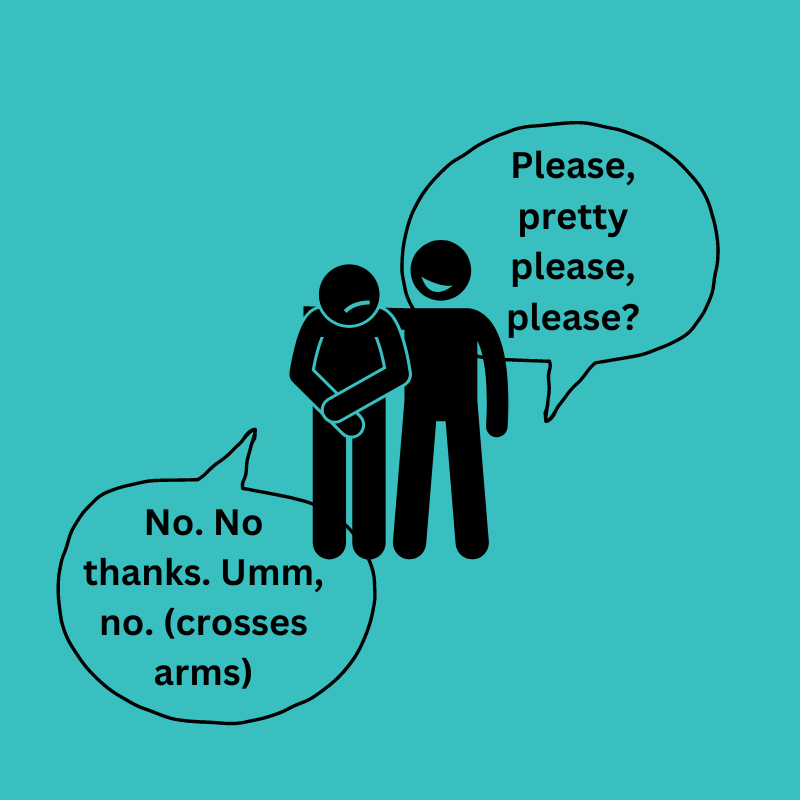
By Jilly Mcbane
How many times have you agreed to something you didn’t want to do just because you wanted to make someone else happy? And maybe you even ended up enjoying it, but more times than not, you ended up regretting it.
When it comes to sex, there’s a huge difference between willing to have sex and wanting to have sex. If someone says “yes” only after you’ve pleaded with them until they changed their mind, then it wasn’t genuine agreement. The problem with this is that we’ve been taught that the only way to gauge our partner’s interest in sex is whether they consent with a verbal “yes.” So, we do whatever we have to do to get to them to that point. But a lot of times, this can end up causing more harm than we realize. Saying please over and over again is a form of coercion — the act of pressuring someone into sex that they actually don’t want.
You simply can’t plead with or beg someone to have sex. If that’s what you feel like it takes, then you’ve failed to notice that they’re not really interested or in the mood at all. On the other hand, if there is an initial “yes” that doesn’t require a “please,” remember to stay tuned in with your partner: Move slowly and pay attention to their moods and feelings. Do they seem comfortable and relaxed? Or tense and resistant? Pick up on their body language and nonverbal cues and don’t solely rely on their explicit agreement. Keep checking in.
I’m not saying this will be easy — and it might even be scary. We’re flipping the narrative on how we’ve traditionally understood and approached sex, which forces us to look at our own words and actions and how they may impact our partner.
 Jilly Mcbane (she/her/hers) is pursuing a degree in psychology and is a member of Greek Life. Jilly is a staff member at the McCluskey Center for Violence Prevention Research & Education.
Jilly Mcbane (she/her/hers) is pursuing a degree in psychology and is a member of Greek Life. Jilly is a staff member at the McCluskey Center for Violence Prevention Research & Education.
